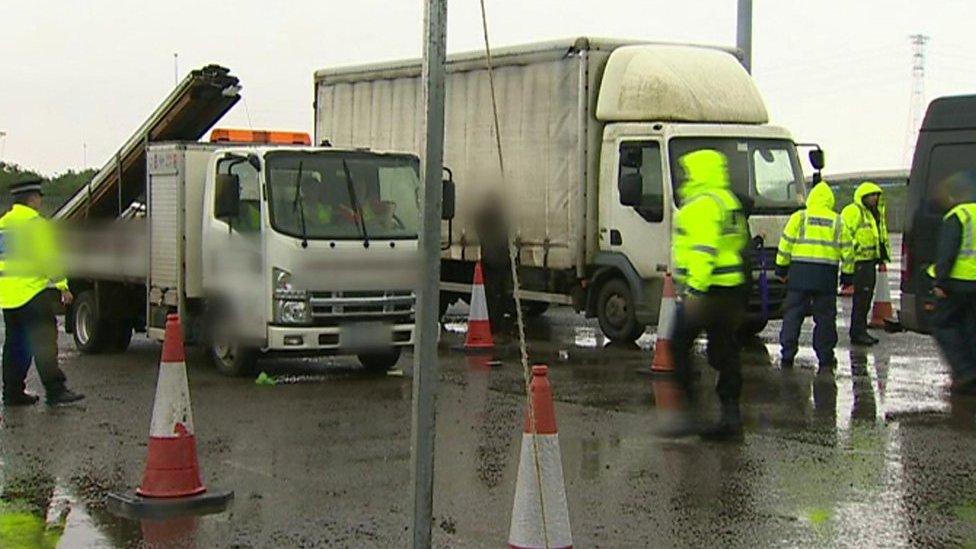Slaves 'as young as 14' rescued in East Midlands
- Published
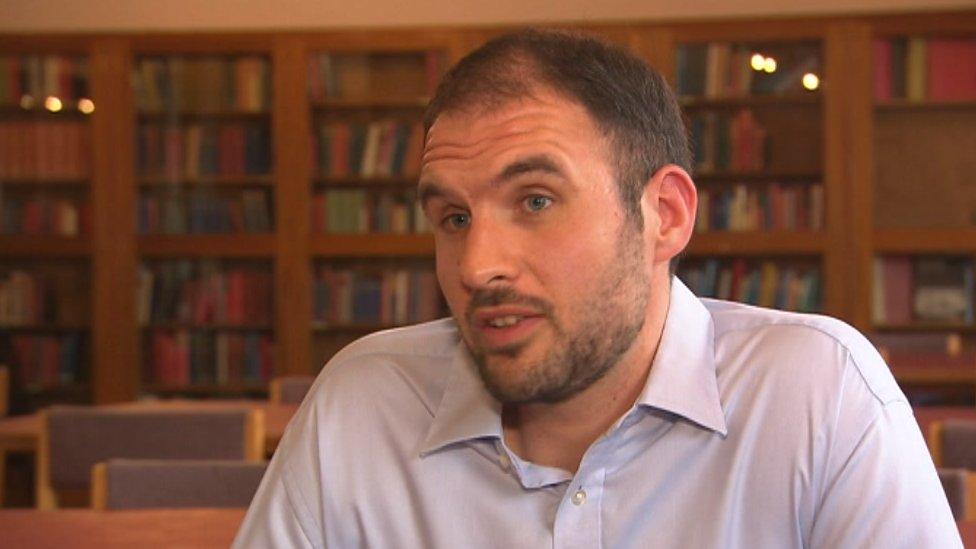
Dr Alex Trautrims of Nottingham University said slaves are a "key source of income" for criminal gangs
A woman who was sold into the sex trade by her husband is one of 140 suspected victims of modern slavery in the East Midlands in the past three years.
The woman, of Chinese origin, worked at a brothel outside the UK before being brought to England.
She was one of 24 Nottinghamshire "slaves" found by police, according to a Freedom of Information request.
An expert said slaves "are cheaper today than ever before" and the trade was "a very profitable business".
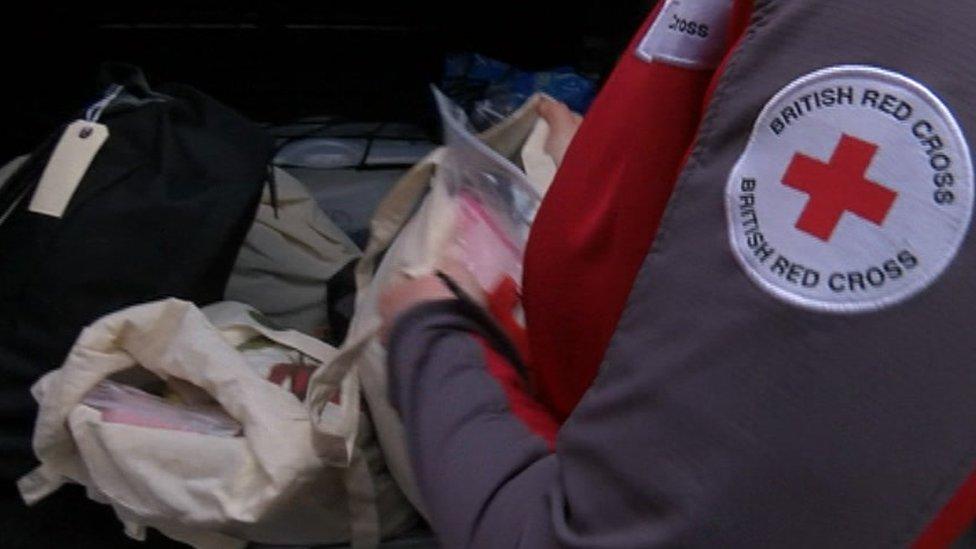
The Red Cross delivers essentials such as food and clothing to people who are rescued by police from modern slavery
The FOI request revealed the 140 "modern slaves" had been found by Leicestershire, Nottinghamshire, Derbyshire and Lincolnshire police forces between January 2014 and the end of 2016.
The victims included children, one who was 14 and another 15-year-old Albanian boy who was forced to work as a pickpocket in Nottingham.
One woman was forced to pay off a debt by working in the sex trade and was told her family would be killed if she did not co-operate.
A 42-year-old Lincolnshire man was found in "a drunken state" by some men who offered him paid work and accommodation but only paid him £20 a day and gave him little food or drink. He eventually witnessed another victim being badly beaten and escaped at night.
'Life-changing moment'
Dr Alex Trautrims, a business expert who researches modern slavery at the University of Nottingham, said: "Modern slavery is one of the key income sources for serious organised crime.
"Slaves are cheaper today than ever before in human history. It is clearly a very profitable business for any modern criminal.
"You use physical abuse - you lock people away in houses and they cannot walk away."
Steve Buxton, a Red Cross volunteer who delivers basic supplies to some victims, said: "It is a really life-changing moment for some people because they have literally just the rags they are standing up in.
"A basic item like toothpaste can make such a difference to an individual who has nothing of their own."
- Published6 June 2017
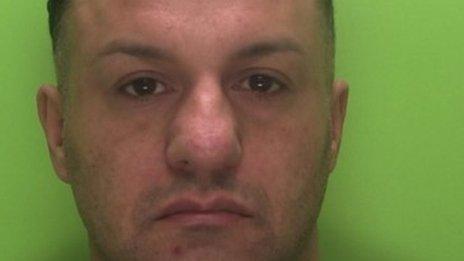
- Published12 May 2017
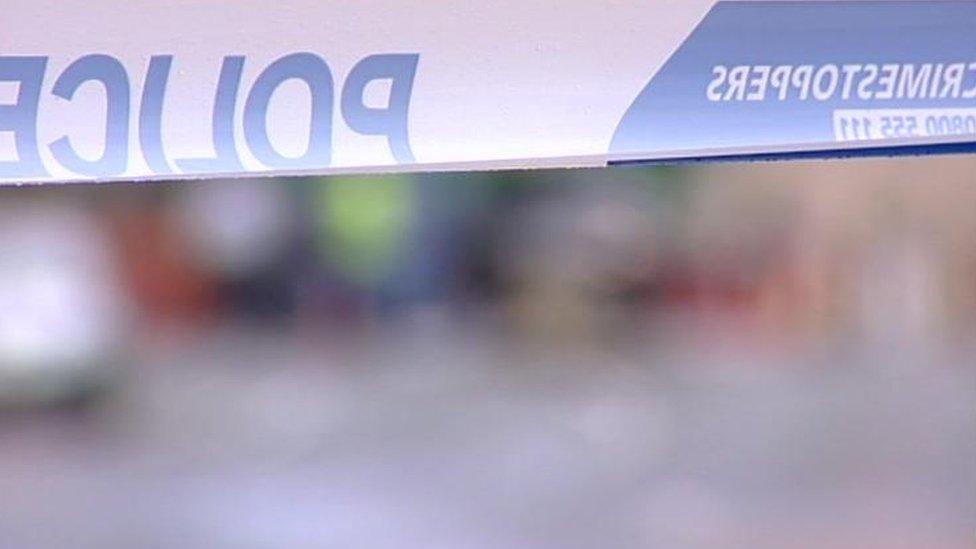
- Published16 May 2017
